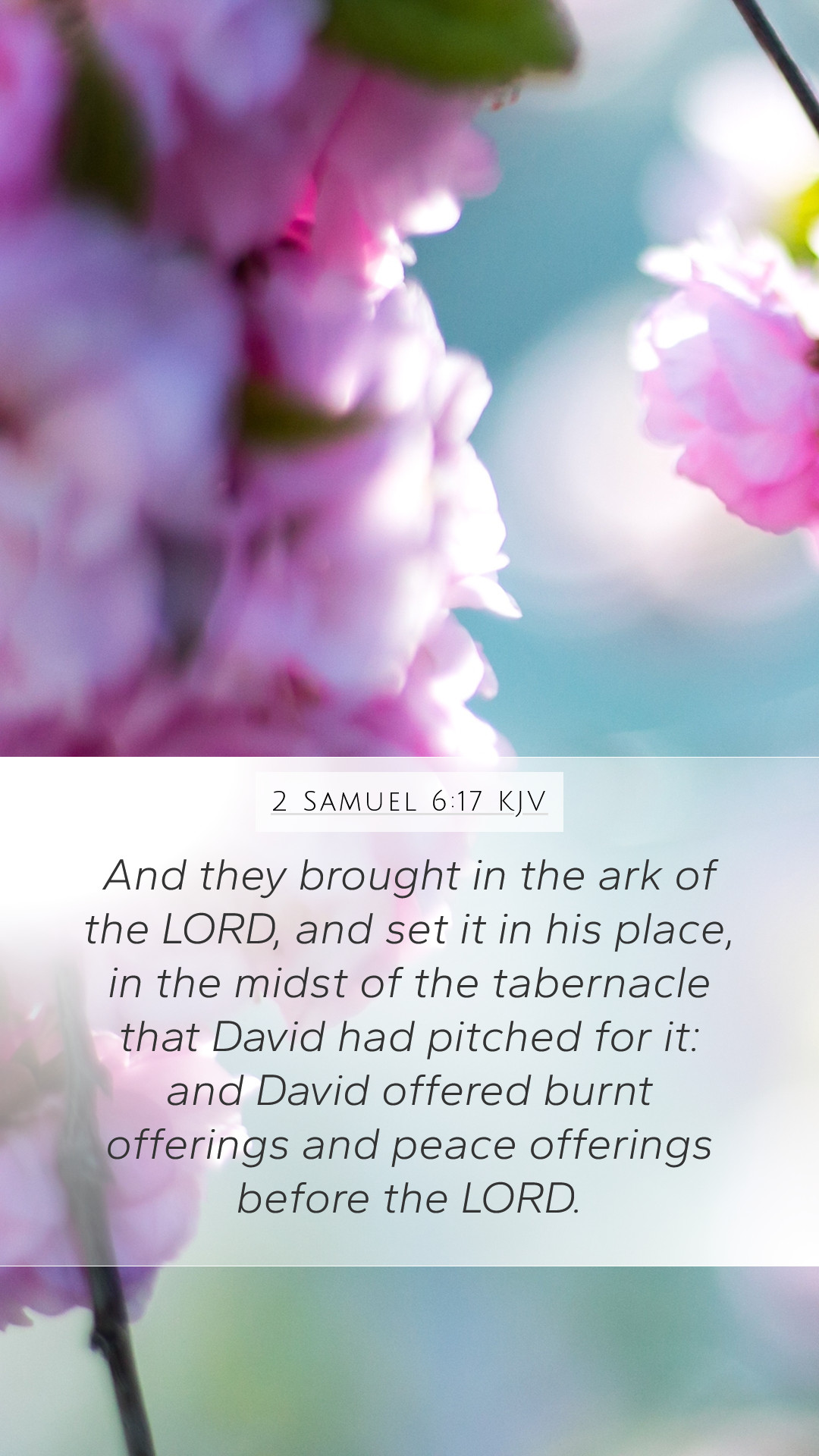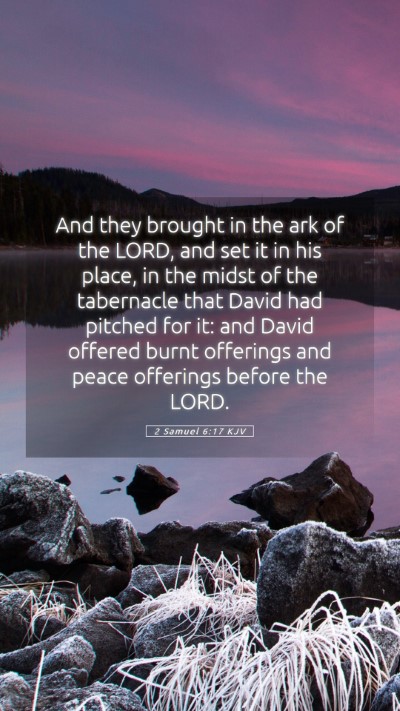Understanding 2 Samuel 6:17
Bible Verse: 2 Samuel 6:17 - "They brought the ark of the Lord and set it in its place inside the tent that David had pitched for it, and David sacrificed burnt offerings and fellowship offerings before the Lord."
Overview
This verse captures a significant moment in biblical history where King David brings the Ark of the Covenant to Jerusalem and establishes it in a tent he prepared. This act symbolizes God's presence among His people and signifies a new beginning for Israel under David's reign.
Meaning and Insights
The following insights combine interpretations from esteemed public domain commentaries by Matthew Henry, Albert Barnes, and Adam Clarke, providing a rich understanding of this scripture.
Significance of the Ark of the Covenant
Matthew Henry: Henry emphasizes the Ark's importance as it represented God's covenant with Israel. Placing it in a tent shows David's desire to honor God and His laws. The Ark's location also highlights the central role of worship in David's administration.
Albert Barnes: Barnes notes that the Ark's arrival in Jerusalem was a moment of celebration and divine acknowledgment. Its placement signifies the establishment of Jerusalem as a religious center, not just a political capital. He underscores the significance of the burnt offerings and fellowship offerings as acts of devotion and gratitude.
Adam Clarke: Clarke comments on the joyful atmosphere surrounding this event, illustrating the unity and purpose in bringing the Ark to Jerusalem. He highlights the communal aspect of worship and sacrifice, suggesting that these acts fostered a deeper connection with God.
Biblical Exegesis
This Scripture shows the transition from a scattered worship in the regions surrounding Israel to a centralized worship focused in Jerusalem, which David envisioned. This not only represents leadership but also reflects the longing for divine guidance and presence among the people.
Contextual Analysis
The context of this verse is crucial to understanding it fully. In the preceding chapters, David had faced struggles, including the failed attempt to bring the Ark previously, which resulted in Uzzah's death (2 Samuel 6:6-7). This led to a serious reflection on how to carry out the worship and respect due to God. The joy in this passage signifies the resolution of past mistakes and the right approach to sacred worship.
Theological Implications
This event illustrates core biblical themes such as:
- God's Presence: The Ark representing God's dwelling among His people.
- Worship: The importance of proper worship and sacrifice; burnt offerings symbolize complete dedication, while fellowship offerings depict communion with God.
- Leadership: David's role reflects a king who prioritizes spirituality alongside his political responsibilities.
Practical Application
For modern believers, this verse encourages reflection on the following:
- The centrality of Worship: How can we honor God in our lives today?
- Community Involvement: The significance of collective worship in a church setting.
- Spiritual Leadership: Considering how leaders today can model David's commitment to God.
Cross References
This verse can be cross-referenced with:
- 1 Chronicles 13:1-14 - The failed attempt to bring the Ark and the importance of doing things according to God's law.
- Psalm 132:8-10 - A reflection on the significance of the Ark in worship and God's promises.
- Hebrews 9:4 - The Ark of the Covenant's mention in the New Testament, emphasizing its ongoing spiritual importance.
In conclusion, 2 Samuel 6:17 serves as a profound reminder of the importance of God’s presence, worship, and the leadership roles in guiding a community towards spiritual fulfillment. Through our understanding of this verse and its context, we can gain deep insights into our relationship with God and our collective worship experience.


